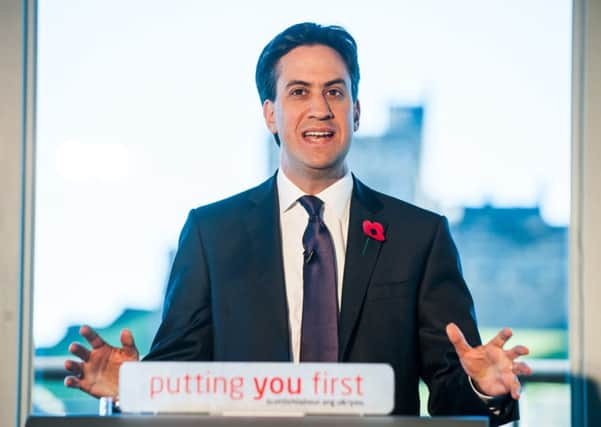David Maddox: Public asking questions raises questions


So given his self image, it seems more than a little ironic that Miliband should follow this up with what can only be a PR man’s solution to reforming parliament – the proposal to let members of Joe Public wander into the Commons to ask the prime minister questions every fortnight.
On the face of it, the proposal seems a rather attractive one in making Westminster politics a little bit more accessible to ordinary people outside the political bubble, but actually it raises some very serious issues.
Advertisement
Hide AdAdvertisement
Hide AdBy implication Mr Miliband is saying that MPs are not up to holding ministers to account, which would have to include himself, given that he has six questions every week to the prime minister himself.
He may, though, have a point, given the number of questions backbenchers are handed by the party whips to ask. During the last PMQs there were at least nine of these.
But this suggestion basically feeds into the perception that MPs are corrupt, cannot be trusted and do not represent their constituents’ points of view or concerns. The perception is repeated so often that even though it is nonsense even the politicians themselves are beginning to believe it.
Whatever you say about MPs they are under the microscope, they have to declare their interests, expenses and are to a degree subject to freedom of information. If parliament was to invite in members of the public to ask questions, would the same be true of them? How could we be sure that lobbyists were not abusing the new system?
Also, would members of the public be subject to the same security scrutiny as the rest of the people on the parliamentary estate? It takes months of background checks for most people to get a pass, and would people who come to ask a question be subject to FOI or have to declare any interests?
None of these questions has been answered by Mr Miliband, nor has the one about how they would be picked and whether the taxpayer would have to fund trips for people from across the UK to come to ask a question in London. It could end up being pensioners, lobbyists and students.
Earlier this year former Tory MP Patrick Mercer had to resign because he abused his parliamentary privileges to ask questions about Fiji as a lobbyist. Under Mr Miliband’s system he could legitimately do the same as a member of the public.